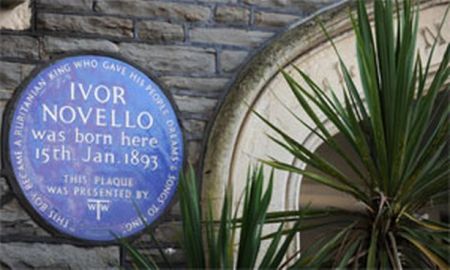The BBC Proms having started on Sunday (20th July), I decided to listen to some of the concerts via BBC Sounds. One can’t get BBC Radio 3 on the radio here in the Republic, at least not this far from the border.
I was disappointed, then, to see that BBC Sounds is no longer available to listeners outside the UK. Apparently The BBC is making BBC Sounds exclusively available to UK license fee payers, meaning users outside the UK, including those in Ireland, will no longer be able to access the full service. This change came into effect yesterday (21st July).
So here I am, as I write this, on 22nd July, listening to this evening’s Promenade concert via BBC Sounds. No, I’m not doing anything illegal or unlawful. Neither did I last night, when I listened to Mahler’s Symphony No. 7. It’s just that the change has been implemented in a very peculiar and confusing way.
To start with, this is what I see a see on my screen right now:

I don’t think you get the top message if you listen in the UK, but then you might be listening on the radio anyway.
At the top it says use the BBC.com or the BBC App. For one thing I can’t find any sign of the “BBC App” on PlayStore on anywhere else. For another, BBC.com offers only Radio 4, BBC World Service and a random selection of podcasts. So neither of those options are any good for listening to Radio 3.
If you click to “Find out how to listen to other BBC stations” you get this page which “explains”:
Earlier this year, we launched a new audio service outside the UK on BBC.com and the BBC app. This includes access to BBC Radio 4 and BBC World Service English, thousands of hours of podcasts (including Global News Podcast, World of Secrets and Infinite Monkey Cage) – as well as some of the best of the BBC’s journalism and storytelling including news and history programming.
As part of the announcement, we said we planned to close BBC Sounds to audiences living outside the UK later this year, making it available exclusively to people in the UK. Anyone who lives in the UK will still be able to use the BBC Sounds app when they go on holiday abroad. We can now confirm that BBC Sounds closed for listeners based outside the UK on 21 July 2025.
Leaving aside the mystery of the “BBC app”, this suggests that BBC Sounds is closed to listeners outside the UK. Except it isn’t.
The article goes on to explain:
Please use the links below for live listening access to the BBC’s other radio stations from across the UK, including BBC Radio 1, Radio 2 and Radio 3, 6Music, 1Xtra and Asian Network, Radio 4Xtra and 5Live, all the BBC’s stations from the UK nations and every local radio station in England.
The link to BBC Radio 3 is this:
https://www.bbc.co.uk/sounds/play/live/bbc_radio_three#noapp
In other words, it takes you back to BBC Sounds, which is where I am listening now! As far as I understand it, one can still listen to the live internet stream of BBC Radio on BBC Sounds, so it’s not closed to listeners outside the UK after all. What is closed (to us foreigners) is the back catalogue of past recordings. I only ever listen to live broadcasts, however, so after all that it’s business as usual for me.
I hope this clarifies the situation.




